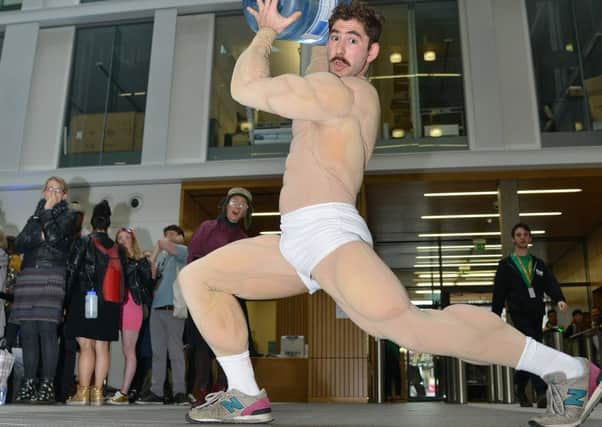Edinburgh Festival snobs '˜look down on comedians'


Nica Burns said comedians was being sneered or looked down upon despite the huge numbers of stars to emerge from the Fringe.
She said it was unfair that comedy was not treated seriously enough in Edinburgh in August when performers had tackled a host of hard-hitting and unfashionable issues in their shows.
Advertisement
Hide AdAdvertisement
Hide AdMs Burns, who has been director of the Edinburgh Comedy Awards since 1984, believes the genre is the “toughest” to work in at the Fringe because most performers write their own material, taken on greater risks with their material, and can face “brutal” audience reactions.
Speaking at the launch of this year’s awards, Ms Burns said comedians had long ago realised that performing in Edinburgh “can give them the gift of time to allow them to speak in-depth about serious subjects, citing recent award-winners Adrienne Truscott, Bridget Christie and Richard Gadd as examples with their shows about rape culture, feminism, and sexual abuse.
She cited Emma Thompson, Tim Minchin, Eddie Izzard, David Walliams and Flight of the Conchords as examples of Fringe acts who appeared in Edinburgh as relative unknowns but have gone on to successful screen careers.
She said: “Making people laugh and forget their cares is great, but actually there is a lot of serious exploration and a lot of serious issues being tackled.
“Underneath the laughter there is an awful lot of conscience and serious debate. But comedy is far too often seen as a lower art form. Why is it that somehow it isn’t given the same status film, theatre and dance are given?
“You only have to look at how comedians have developed. Some of them are working in Hollywood, others are writing TV series, both funny and series, and the theatre world is filled with comics. It’s about time people took the contribution of comedy much seriously - to culture as a whole and also internationally.”
Thompson, who has won two Academy Awards for her films, first found name at the Fringe in 1981 when her Cambridge Footlights show, which also starred Stephen Fry and Hugh Laurie, won the first ever Edinburgh Comedy Award, then known as the Perrier Award. Other winners of the prize who have gone on to huge success in theatre, film and television include Steve Coogan, Al Murray, The League of Gentlemen, Dylan Moran and Sarah Millican.
Advertisement
Hide AdAdvertisement
Hide AdMs Burns added: “Comedy is probably the hardest genres of culture to work in. You have to write your material, as well as perform it.
“Most comedians mine their own experiences, so they are really putting their lives on stage. The stakes are much higher and it is much riskier, but that means they learn a great deal. The audience tells you what works and what doesn’t. It can be brutal.
“It’s harder to get drama onto the Fringe, but that’s partly because theatre has become so much more ambitious. There are limitations to what you can do at the Fringe.
“This is really the only big opportunity comedy has throughout the year. Comedians can’t really develop their shows anywhere else like they can in Edinburgh.”
